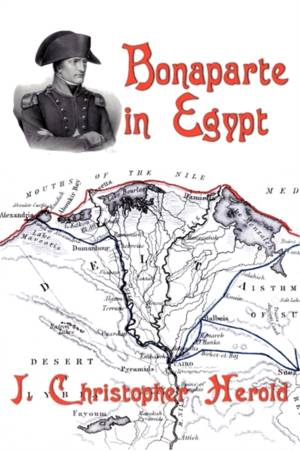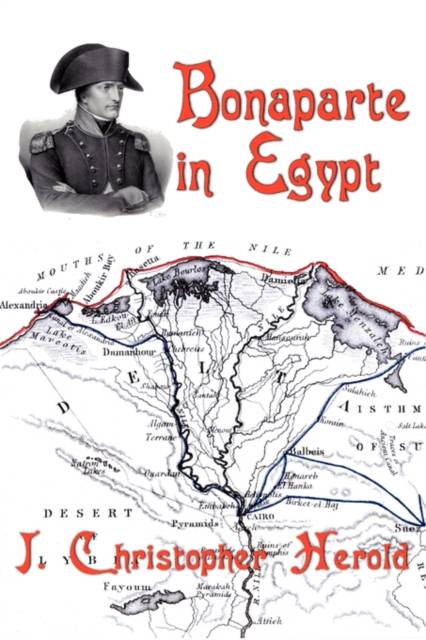
En raison d'une grêve chez bpost, votre commande pourrait être retardée. Vous avez besoin d’un livre rapidement ? Nos magasins vous accueillent à bras ouverts !
- Retrait gratuit dans votre magasin Club
- 7.000.000 titres dans notre catalogue
- Payer en toute sécurité
- Toujours un magasin près de chez vous
En raison de la grêve chez bpost, votre commande pourrait être retardée. Vous avez besoin d’un livre rapidement ? Nos magasins vous accueillent à bras ouverts !
- Retrait gratuit dans votre magasin Club
- 7.000.0000 titres dans notre catalogue
- Payer en toute sécurité
- Toujours un magasin près de chez vous
Description
The French expedition to Egypt, which Bonaparte launched in 1798, was one of the most exciting, harrowing, futile, and yet most fruitful adventures in modern times. Although the expedition was doomed, and almost everyone in it had only one wish-to go home-the impact of the three years of French occupation left a lasting mark on Egypt. The book is crowded with dramatic episodes. We see the French, without supplies, crossing the desert in midsummer and, without a rest, fighting the Battle of the Pyramids. We witness the glories and horrors of the Battle of the Nile, the uprising of Cairo, the butcheries at Jaffa and at Acre, the labors of the Institute of Egypt, the ravages of the plague, and the unbelievable game that Bonaparte played with Islam. The personalities are no less colorful than the incidents. Besides Bonaparte, who revealed, while in Egypt, his most repulsive and his most admirable qualities, there are the forthright and caustic General Kléber; Lord Nelson of the Nile; the uncatchable Mameluke Murad Bey; the Pasha of Acre, who gloried in the surname Djezzar, "the Butcher"; and the chivalrous and eccentric Sir Sidney Smith. Add to that list the selfless and heroic General Desaix; Dr. Desgenettes, who inoculated himself with the plague and survived to give Bonaparte a public dressing-down; General Menou, who became a Moslem to marry a bath-keeper's daughter; and Pauline Fourés, who became Bonaparte's mistress in one of the more ludicrous episodes of the campaign. Christopher Herold has drawn on official documents, on Arabic chronicles, on the memoirs and diaries of generals, officers, simple soldiers, artists, engineers, and physicians. He has also visited the countries where the action took place and pushed thoroughness to the point of contracting (briefly) Egyptian ophthalmia; although he stopped short at seeking first-hand experience with the plague. If you wish to understand the Napoleonic Era, this book is a must read.
Spécifications
Parties prenantes
- Auteur(s) :
- Editeur:
Contenu
- Nombre de pages :
- 460
- Langue:
- Anglais
Caractéristiques
- EAN:
- 9781934757765
- Date de parution :
- 04-05-09
- Format:
- Livre broché
- Format numérique:
- Trade paperback (VS)
- Dimensions :
- 152 mm x 229 mm
- Poids :
- 671 g

Les avis
Nous publions uniquement les avis qui respectent les conditions requises. Consultez nos conditions pour les avis.






